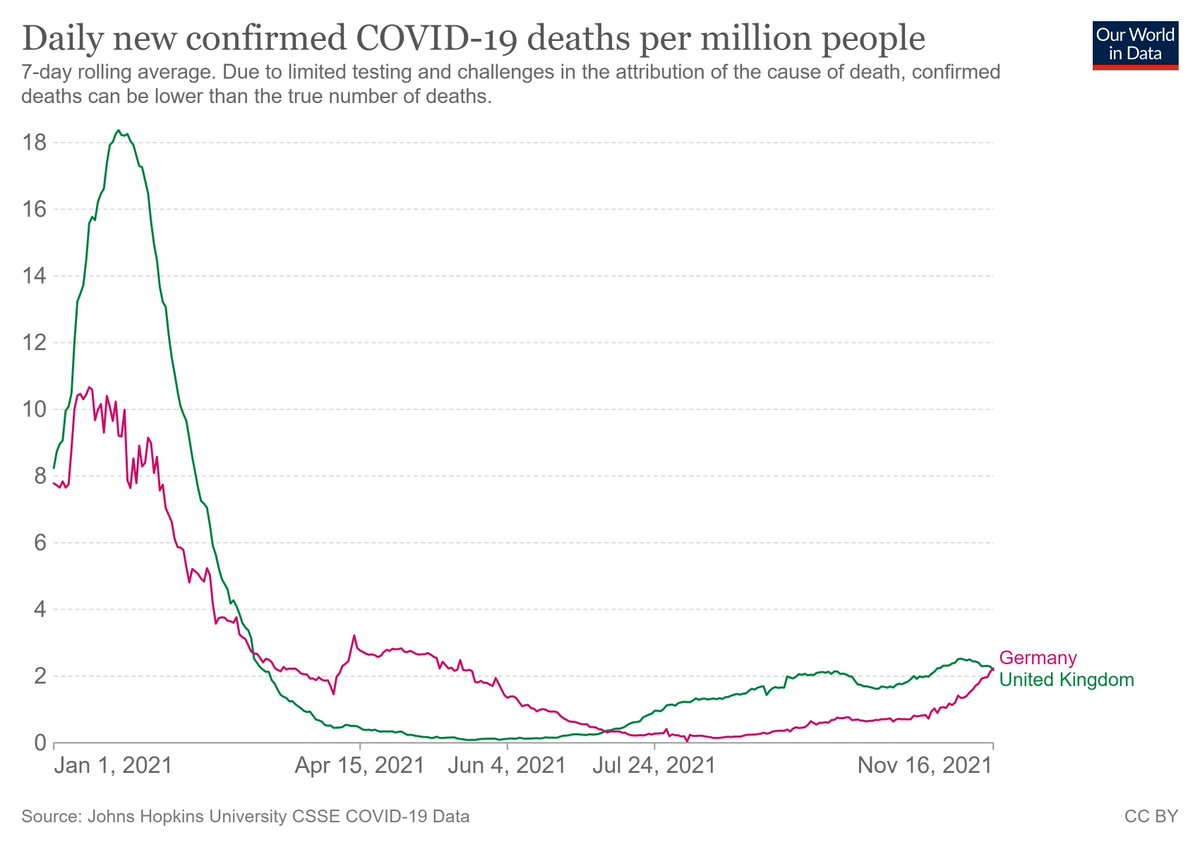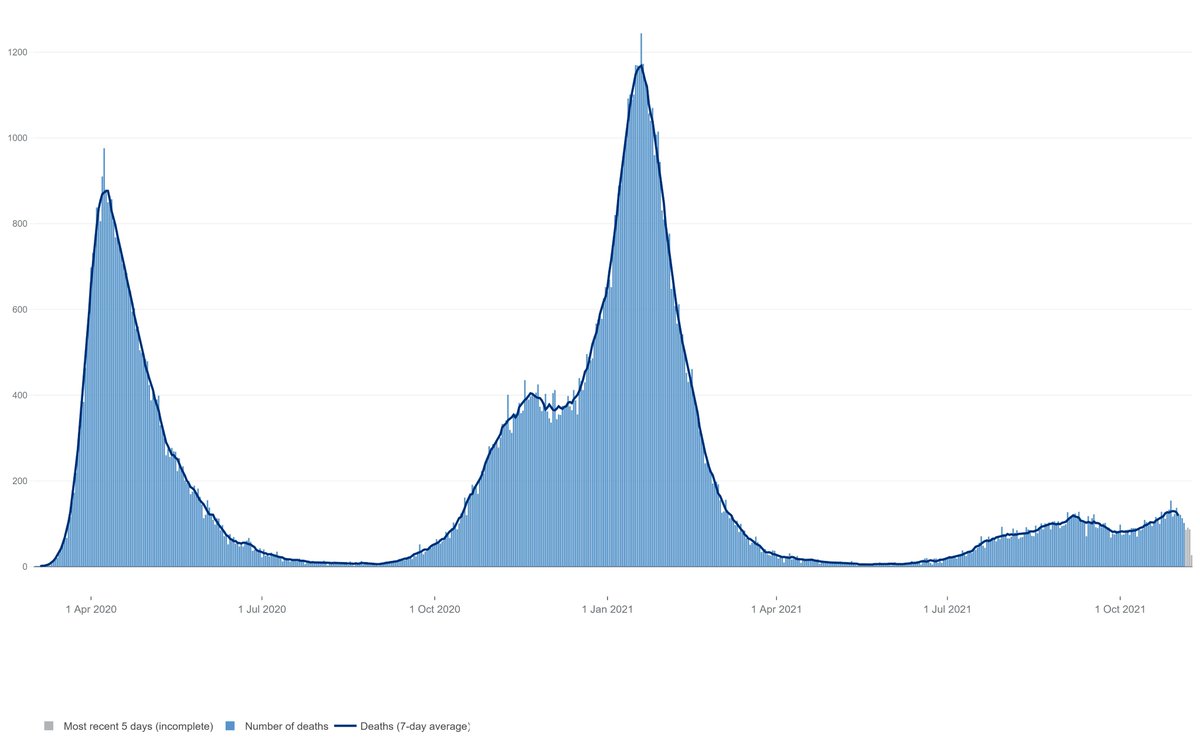
Good to discuss current Covid situation with @jennykleeman @TimesRadio this morning.
Main points:
1. Many people are understandably worried about Oimicron and are feeling like we are back to square one & in same position as we were this time last year but we really aren’t.
1/
Main points:
1. Many people are understandably worried about Oimicron and are feeling like we are back to square one & in same position as we were this time last year but we really aren’t.
1/
This time last year, almost none of us had had vaccines, whereas this year over 95% of adults have some degree of immunity mainly through vaccination and also natural infection - and over 80% in the highest risk groups have also had their booster/3rd doses
2/
2/
So the vast majority of those in high-risk groups – those who end up in hospital or die from Covid - are much better protected than they were last year - including against Omicron - and don’t need to be living in fear.
3/
3/
But of course we should not be complacent either, it is clear that omicron is spreading very quickly in the UK and that we are likely to be facing hundreds of thousands of infections in the coming weeks which could lead to tens of thousands of admissions and deaths as
4/
4/
shown by the various scenarios - not predictions - produced by modelers. But until we have more data esp. on severity of Omicron & vaccine effectiveness against hospital admission, the outcome remains highly uncertain but preliminary data from S. Africa is somewhat reassuring.
5/
5/
It's also true that NHS is already under great pressure and frontline staff are mentally and physically exhausted so we do need to try to prevent the peaks we saw last year in order to save lives not just from Covid but to prevent the knock-on effects which harms all patients
6/
6/
However, with regard to more restrictions, we are in a different position to last year because then we knew that by reducing infections through those measures, we would be able to prevent many deaths because we had the prospect of the vaccine rollout just around the corner.
7/
7/
Whereas now those highest risk groups are vaccinated so the relative benefit from those restrictions is reduced but the harms are likely to be the same.
And that needs to be taken into account when making decisions re. new restrictions which should not be bought in unless
8/
And that needs to be taken into account when making decisions re. new restrictions which should not be bought in unless
8/
we have good evidence that those restrictions are going to produce more health benefit than harm.
So the government needs to ensure that these cost- benefit analyses - including economic harms (esp. unemployment which harms health) are done before bringing in new restrictions
9/
So the government needs to ensure that these cost- benefit analyses - including economic harms (esp. unemployment which harms health) are done before bringing in new restrictions
9/
But at the same time, we also know that if the virus is seen to be out of control, fear increases and people will stay at home anyway, and won’t go to restaurants, pubs, theatres, etc. - i.e. you get a voluntary lockdown and so you still get the economic hit
10/
10/
So it’s a very difficult balancing act made more difficult by the uncertainty of the evidence and is ultimately a political - not a scientific - decision for our elected representatives to make taking into account all these factors.
11/
11/
Final point - everyone can take actions to protect themselves and reduce pressure on the NHS this winter by taking the third dose which has the best evidence to show it will protect against all variants and significantly reduce hospital admissions and deaths and also by
12/
12/
continuing to follow the basic public health guidance which will reduce all infections i.e. washing hands, wearing a mask properly, making sure rooms are well ventilated & taking a lateral flow test before attending large indoor events or meeting those who are at highest risk.
13
13
• • •
Missing some Tweet in this thread? You can try to
force a refresh














